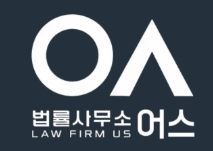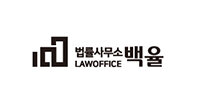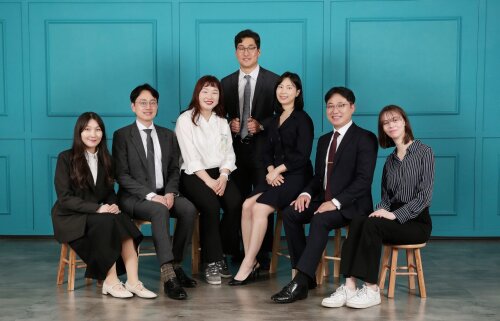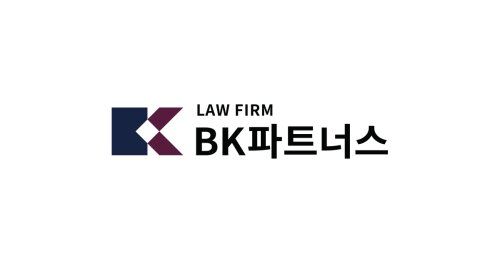Best Civil & Human Rights Lawyers in South Korea
Share your needs with us, get contacted by law firms.
Free. Takes 2 min.
Or refine your search by selecting a city:
List of the best lawyers in South Korea
About Civil & Human Rights Law in South Korea
In South Korea, Civil & Human Rights are protected under the country's Constitution, which enshrines a comprehensive list of rights and liberties afforded to all individuals. The Constitutional Court, alongside other judicial bodies, plays a pivotal role in ensuring these rights are upheld. South Korea is also a signatory to several international treaties on human rights, reflecting its commitment to global standards in civil liberties. Despite this legal framework, issues such as freedom of speech, privacy rights, and discrimination continue to be significant concerns that necessitate ongoing legal vigilance.
Why You May Need a Lawyer
Individuals might require legal assistance in Civil & Human Rights for various reasons. Common situations include:
- Experiencing workplace discrimination based on gender, race, or disability.
- Facing violations of privacy or freedom of speech.
- Encountering human rights abuses by public authorities.
- Needing protection against unlawful detention or unfair trial processes.
- Pursuing legal recourse in cases of police misconduct or abuse of power.
Legal expertise can help navigate complex legal systems, ensuring that rights are protected and justice is sought effectively.
Local Laws Overview
South Korea's legal system is heavily influenced by its Constitution, supplemented by numerous statutes and judicial interpretations relevant to Civil & Human Rights:
- The National Human Rights Commission Act establishes a national watchdog to monitor and address human rights concerns.
- The Personal Information Protection Act regulates the collection and use of personal data, safeguarding privacy rights.
- The Gender Equality Employment Act aims to prevent discrimination in the workplace and promote equal opportunities.
- The Act on the Punishment of Sexual Crimes and Protection of Victims provides protections and support mechanisms for victims.
- Constitutional provisions ensure protections for freedom of expression, assembly, and association.
Frequently Asked Questions
What are the primary laws protecting human rights in South Korea?
The Constitution of South Korea, along with various acts like the Human Rights Commission Act and the Personal Information Protection Act, provide a robust framework for safeguarding human rights.
Can I seek legal action against discrimination in the workplace?
Yes, under the Gender Equality Employment Act and other relevant statutes, individuals can pursue legal remedies for workplace discrimination.
How does South Korea protect my privacy?
The Personal Information Protection Act is a key piece of legislation that dictates how personal data can be collected, used, and stored, ensuring significant privacy protections.
What should I do if my freedom of speech is violated?
You can file a complaint with the National Human Rights Commission or seek judicial relief through the courts to address violations of free speech rights.
Where can I report human rights abuses by the police?
Incidents of police misconduct can be reported to the National Human Rights Commission and, if necessary, pursued through legal action in court.
Are there protections for whistleblowers in South Korea?
Yes, the Protection of Public Interest Reporters Act provides protections for individuals who report violations of law or corruption.
How can I obtain legal assistance in human rights cases?
Legal assistance can be sought through private law firms specializing in civil rights, public legal aid services, or non-governmental organizations dedicated to human rights.
What are the penalties for violating human rights laws?
Penalties vary depending on the severity and nature of the violation, ranging from fines and suspensions to imprisonment in serious cases.
Can international human rights treaties be enforced in South Korea?
Yes, as a signatory to various international treaties, these can be invoked in legal proceedings and have influence over domestic legal practices.
What recourse do victims of human trafficking have?
Victims can access legal protections and support services under the Act on the Protection of Children and Youth against Sexual Offenses and the Framework Act on Women's Development.
Additional Resources
For those seeking more information or assistance, consider consulting:
- National Human Rights Commission of Korea: Offers guidance and support for human rights issues.
- Legal Aid Center for Migrant Workers: Provides legal assistance to migrant workers facing rights violations.
- Korean Bar Association: Connects individuals with professional legal services.
- Ministry of Gender Equality and Family: Offers resources related to discrimination and gender rights.
Next Steps
If you believe your civil or human rights have been violated, consider taking the following steps:
- Document all relevant information and evidence related to the potential rights violation.
- Consult a legal professional who specializes in civil and human rights law to discuss your case.
- Contact organizations that offer support and legal aid for guidance and assistance.
- File a complaint with the appropriate governmental body, such as the National Human Rights Commission.
- If necessary, prepare to take legal action through the judicial system to seek justice and redress.
Lawzana helps you find the best lawyers and law firms in South Korea through a curated and pre-screened list of qualified legal professionals. Our platform offers rankings and detailed profiles of attorneys and law firms, allowing you to compare based on practice areas, including Civil & Human Rights, experience, and client feedback.
Each profile includes a description of the firm's areas of practice, client reviews, team members and partners, year of establishment, spoken languages, office locations, contact information, social media presence, and any published articles or resources. Most firms on our platform speak English and are experienced in both local and international legal matters.
Get a quote from top-rated law firms in South Korea — quickly, securely, and without unnecessary hassle.
Disclaimer:
The information provided on this page is for general informational purposes only and does not constitute legal advice. While we strive to ensure the accuracy and relevance of the content, legal information may change over time, and interpretations of the law can vary. You should always consult with a qualified legal professional for advice specific to your situation.
We disclaim all liability for actions taken or not taken based on the content of this page. If you believe any information is incorrect or outdated, please contact us, and we will review and update it where appropriate.
Browse civil & human rights law firms by service in South Korea
South Korea Attorneys in related practice areas.
Browse civil & human rights law firms by city in South Korea
Refine your search by selecting a city.













